#fx stuff
Explore tagged Tumblr posts
Text
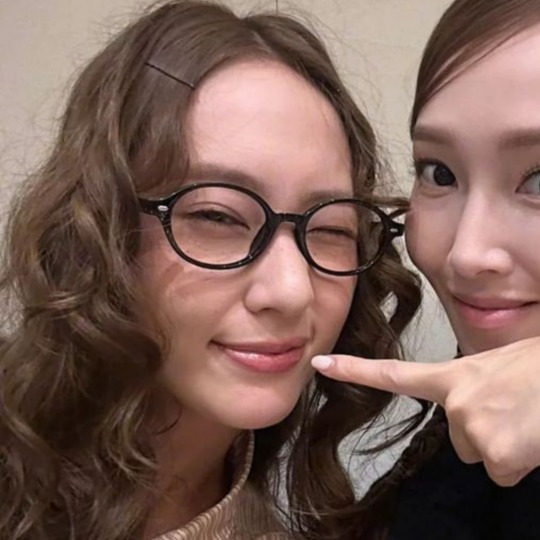
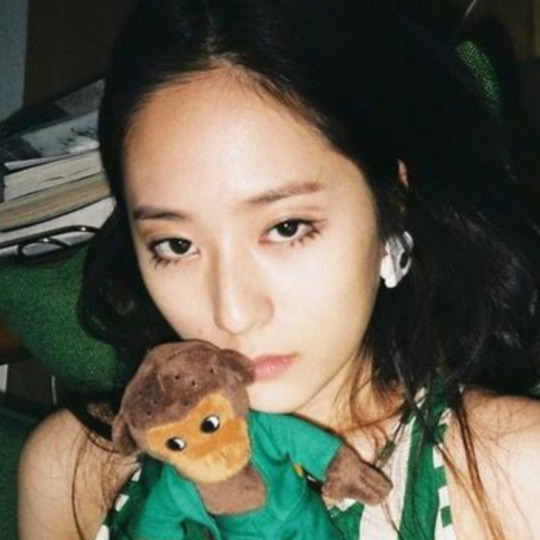
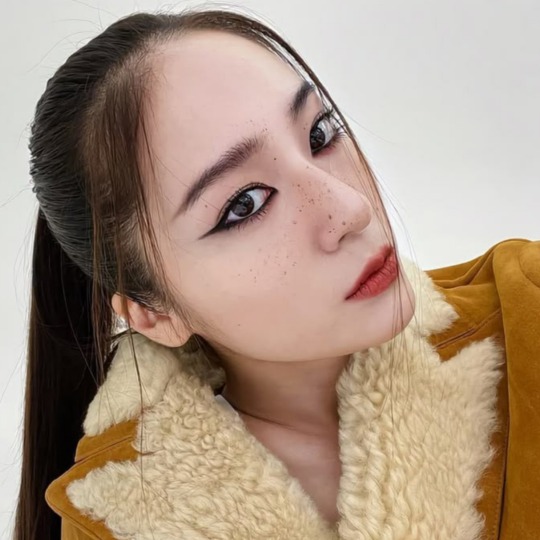
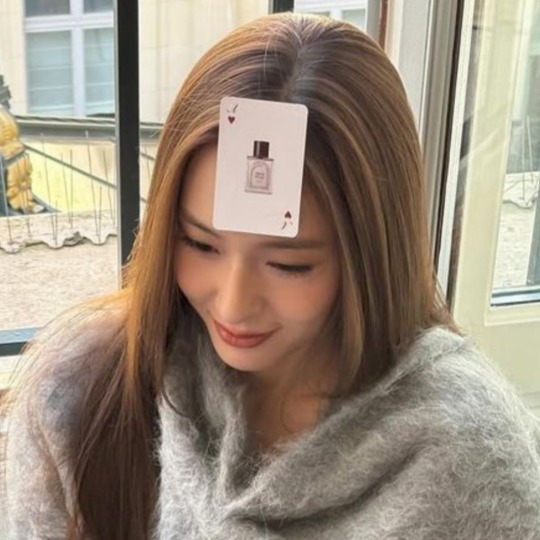

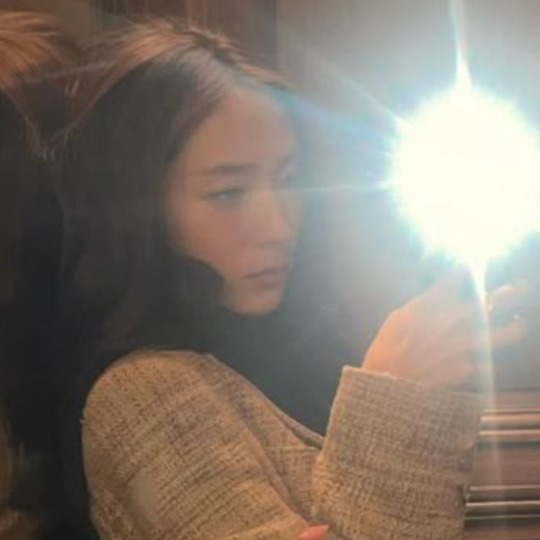

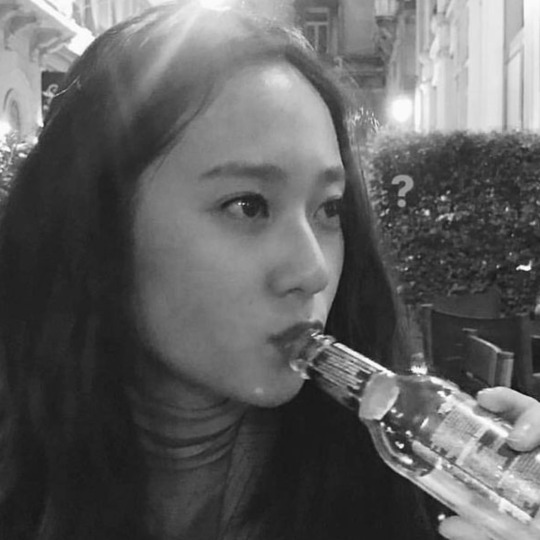
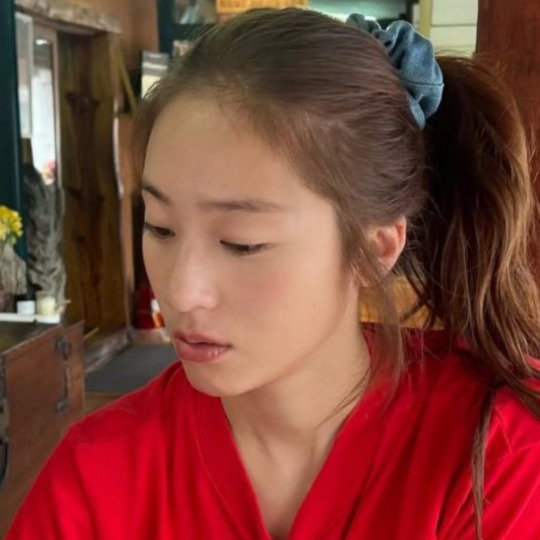
krystal
#fx icons#fx edits#fx stuff#krystal icons#krystal edits#krystal stuff#krystal jung icons#krystal jung edits#jung soojung icons#jung soojung edits#kpop edits#kpop icons#girl groups icons#ggroups icons#gg icons#korean dramas icons#korean actresses icons#kdramas icons#doramas icons
42 notes
·
View notes
Text


chef with a silver earring
#close friends on the tweeter saw it first#but some nice ppl on the bear tw also liked it so i'm posting it here bc my tw account is going back to private !!#this has been in the drafts since nov 2023 bc im too much of a perfectionist and felt like this was not fully realized. never good enough#it sounds like ive been working on it for a full year but its not the case at all. altogether this was prob 1 week worth of work#but this year was tuff and i abandoned digital art a little bit and didn't work on it at all hsdsafjsdjas#but im setting it free now in hopes so that new art may come. hope some of you out there like it!#also hope in 2025 i can go back to doing a lil more stuff in a more disciplined manner lol#sydney adamu#ayo edebiri#the bear#the bear fx#the bear fanart#my art
6K notes
·
View notes
Text
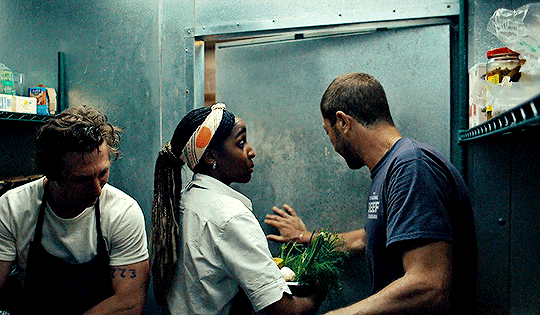
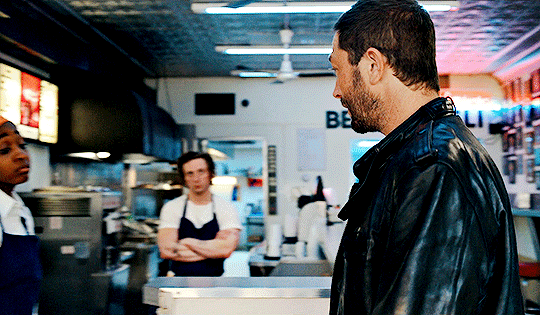

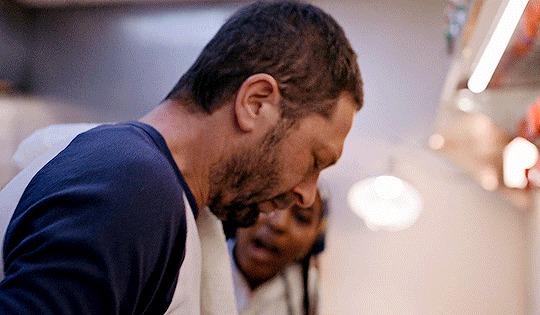
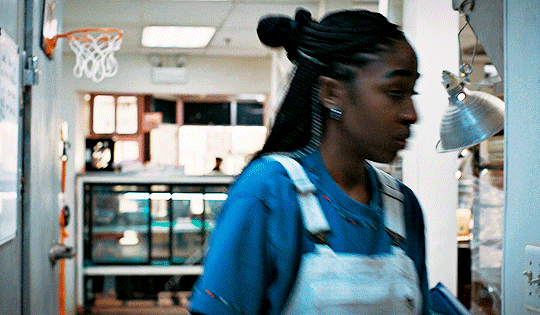

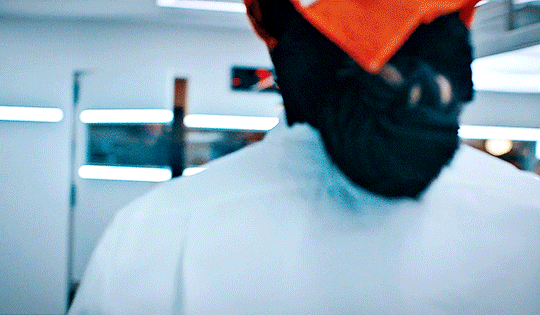
SYD and RICHIE + personal space
#the bear#the bear fx#tvedit#thebearedit#ayo edebiri#sydney adamu#richie jerimovich#ebon moss bachrach#sydrichie#syd x richie#televisongifs#tvandfilm#userstream#userrobyn#userconstance#nessa007#*my stuff
1K notes
·
View notes
Text

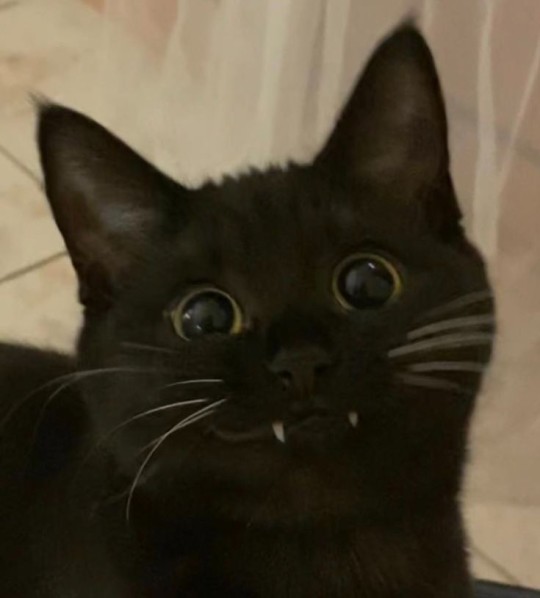
oh, sorry
two same pictures
224 notes
·
View notes
Text
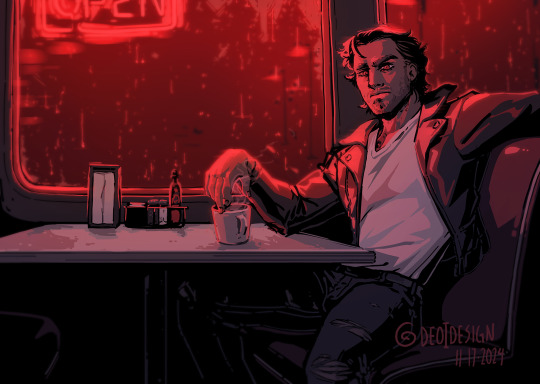
Red is a good color
#I havent drawn anything other than work stuff for a while#nice to be able to sketch something#yes this is a sketch for me okay. I just added FX on top so it feels more not sketchy#anyway. I love steve#read my comic#its called time and time again#I'm so tired#life stuff has been rough#I'll be back#bye#time and time again#steve#hes hot. this was by request from a friend#sort of. I mean it was. she was joking but then I did it anyways#cause#I mean#look at him...#anyways yeah I have to get more comic stuff done#so that I can catch up to be able to thumbnail the rest of the series#and then also so I can get going on the book again...#aaaaa. and I have commissions#I'm fucked HAHAHAHAHAH#anyways. 2 hours on this is fine#this is fine#LMGJSALGKSAJGLDKAJGLKASG#ok bye actually
308 notes
·
View notes
Text
each week i tune into shogun in order to see toranaga do the political equivalent of sticking out his leg and making eye contact with yabushige while yabushige trips over him
#i'm an episode behind currently#but i was very entertained by the scene where he was talking circles around yabushige while ferreting out who ordered the attack on jozen#yabushige would love to be a schemer but he is simply not on toranaga's level and it's so funny#pie says stuff#shogun#shogun fx#yoshii toranaga#kashigi yabushige
966 notes
·
View notes
Text
It stays
a luca x f!reader

synopsis: she didn’t mean for him to see the scars. but he didn’t flinch. he didn’t ask. he just held her hand.
rating: 16+
warning: mention of self-harm scars, slight mention of intimacy.
word count: 1.8k
a/n: here’s another one, i hope y’all like it. i write it with all the admiration and respect when it comes to slf hrm.
if you ever went through it, you’re so brave and the world is lucky to have you here. 🕊️
——————————————————————————
You’re not sure when you started dreading the quiet moments — the soft pauses between conversations, the seconds before taking your shirt off, the flickers of stillness when there’s nothing left to hide behind.
There are things you’ve never shown anyone.
Not just because you want to hide.
But because you’re terrified of being seen — and then left.
He has been always understanding.
Since they met that day in the restaurant, since he glanced at her with his blue eyes, since the first day and the first kiss.
Because that’s him.
Tender, Kind.
And you didn’t want to scare him away.
And there you are, quiet now — hidden under the fabric of a long-sleeved shirt even though it’s warm in Luca’s apartment. You sit cross-legged on his couch, wrapped in a soft throw, your hair pulled up, a mug cooling between your palms. He’s finishing the dishes, sleeves rolled, a dish towel slung over his shoulder.
The two of you have been in this thing — this almost-relationship — for a few months now. Close enough that he knows how you take your coffee. That you hate being tickled. That you always wear long sleeves, even when it’s hot.
You should be tired. You should say you should go. But you don’t. He hasn’t asked you to.
You think about telling him. Not everything. Just the barest truth: I have scars and they are not pleasant to look at.
But the words stay in your throat.
He joins you with a smile, nudging your foot under the blanket with his. “You falling asleep on me?”
You shrug. “Maybe.”
He grins. “You look like a cozy little burrito.”
“High praise.”
“You’re the best kind of burrito.”
You laugh softly, but your fingers curl tighter around the mug. 
He notices. He always does.
You end up watching an old movie — the kind you’ve both seen a dozen times, which makes it easier to talk over it, or drift off mid-scene. His hand finds yours somewhere in the second act, and the quiet between you softens.
It’s like that for a while — easy. Steady
Until you stretch without thinking.
The blanket slips. Your sleeve rides up.
And everything stills.
You feel it the second it happens. The air shifts. His gaze catches for a second too long on your forearm — on the pale, faded scars that curve across your skin like old, half-healed confessions.
Your breath halts.
“Shit” You tug the blanket back up. “Sorry” You pull your sleeve down fast. Too fast.
Luca doesn’t say anything right away. And somehow, that makes it worse.
“I didn’t mean for you to see that,” you say quietly.
“I know,” he says.
Your throat tightens.
“Well, it’s nothing.” You say and look away.
There they are, an old reminder of how low you were, of how much you improved and the meaning that you chose to stay.
He shifts closer. Not pressing. Not forcing. Just… there. Present.
You’re ready for the questions. For him to ask when, or why, or what happened.
You’ve answered those before, quietly, in therapists’ offices and to one or two friends you trusted just enough. You could do it again if he asked.
But he doesn’t.
He says, gently, “Can I hold your hand?”
You blink and look at him, his gentle gaze on you.
Not judging, not pitying, understanding.
Then you nod.
“I’m not gonna ask what happened. Unless you want me to.”
You nod, honestly, you could tell him.
Of your dark years of high school, your terrible family and your abusive friends.
But you chose not to.
“I don’t want to.”
“Then don’t.”
You wait for pity.
What you get is warmth.
Of course, it’s Luca.
He’s like that.
And that made you lose a weight you had no idea you were carrying.
“I don’t do it anymore, it… it’s okay.” You say simply.
He brushes his thumb across your knuckles. “Sadness doesn’t scare me.”
You don’t say anything.
“But losing you would,” he adds. “So, tell me if you ever feel like… doing it again.”
“I won’t!”
He doesn’t flinch, just nods and gives a soft kiss on your hands. He stands up and caress your cheek before leaving to his bedroom.
——————————————————————————
You knock at the door later.
“It’s open.” He says softly.
“I… I better get going.” You say.
“It’s too late.”
“I’ll get an uber, it’s no big deal.”
“No, if you want to go i’ll take you.”
You gaze at the clock.
12:54
“Do you mind if… if i stay?”
He looks at you, surprised.
You’ve never asked to stay.
But he doesn’t mind.
You borrow one of his hoodies and stay in underwear.
The light dim and the sheets cool against your back, you hesitate. You always do.
“You okay?” he asks, already propped up on one elbow, watching you with quiet patience.
“Yeah.” You smile softly.
“You don’t have to hide anything from me.” He caresses your knuckles softly.
“I’m not hiding.” You chuckle.
“You’re protecting yourself. That’s different.”
He reaches for the hem of his hoodie on you. He touches it slightly, asking for permission. You let him.
He lifts it slowly, his eyes never sharp, never prying. He sees the scars.
He doesn’t flinch.
He leans down and kisses the inside of your arm. Right where the line curves.
“You’re so beautiful.” He whispers.
“I thought you’d think they were ugly,” you admit, breath catching.
“I think they’re yours,” he says. “And that’s never been ugly to me.”
“I’m sorry i yelled before.”
“It’s okay.” He says now looking at you.
And as you loom at him a little tingle in your stomach grows.
The sight of his messy blonde hair, his blue eyes and thin lips makes you admire him almost in devotion.
He also looks at you the same way, you feel it, you know it.
But you’ve never done anything like that.
You’ve kissed before but what you were thinking was another step.
And Luca doesn’t know yet. Not because you’ve kept it a secret — but because it never felt like the right time to say. Until now.
He touches your cheek and slowly leans to kiss you, softly and tenderly as always.
You break the kiss and your hand moves to his chest. “Can I tell you something?”
His expression softens. “Anything.”
“I… i know we’ve never talked about this… like, going all the way.”
His eyebrows come up in an instant.
“You mean?” He says suggesting.
“Yes.”
You swallow. “I’ve never… done this before.” You look down. “Not with anyone.”
A pause.
“Okay,” he says. Not surprised. Not disappointed. Just — okay. Like it changes nothing.
“You don’t have to,” he adds, gently. “We don’t have to.”
“The thing is that I do want to.” Your voice is quiet, but certain. “I just… I want it to be with you.”
He nods.
“Okay.”
“You want to?” You ask softly.
“Yes, i want to.” He smiles softly.
You nod and he kisses you again, this time differently. Firmer, constant.
He touches you like a secret. Like a memory. Like something he doesn’t want to rush.
The hoodie comes off, but not in a hurry. Your scars are exposed again — and again, he doesn’t flinch.
When he kisses you, it’s not out of desire alone — it’s reverent. It’s an I see you. It’s an I’m here.
His mouth traces the path from your shoulder to your wrist. His hands ask before they move. He looks at you every step of the way, making sure you’re still with him.
And you are.
You say yes with your eyes, your breath, the way your fingers curl into his when he rests above you, weight held with care.
There’s no pressure. No urgency. Just this quiet, growing warmth that rises and pulses and carries you both into something new.
When he finally moves inside you, he holds your gaze. Forehead to forehead. Breath shared.
And it’s not what you were afraid it would be — it’s not something taken.
It’s something given.
Something shared.
After, you lie tangled in the sheets, your bare arm across his chest. He traces slow circles on your back, pressing a soft kiss to your temple.
Neither of you speaks for a while.
You don’t need to.
Because this — this quiet, this stillness, this love — says everything.
You are here.
You are held.
You are loved.
Not despite the scars.
But with them.
#chef luca x reader#chef luca#the bear#will poulter#luca x the reader#luca the bear x reader#luca the bear#the bear season 3#the bear fx#the bear s3#will poulter x reader#will poulter fic recs#fanfic writing#one shot#the bear x oc#ao3 fanfic#fan fiction#tumblr stuff
91 notes
·
View notes
Text
“ew no, 😫 i hate that ship!”
okay?? so go cry about it. tf you want from me?

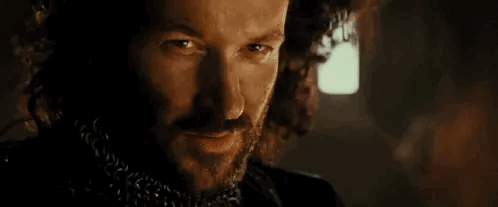
#if it bothers you that much then filter the ship name and stop interacting with the content#i ain’t got shit to do with you fyp algorithm. you did that#fix your ‘you problems’ on the tag for ‘you problems’ instead of on the tag of the ship you ‘’hate’’#idk what you want from me i just go here#fandom ships#blue eye samurai#avatar the last airbender#the rings of power#fandom shenanigans#fandom shitpost#zutara#spuffy#taimizu#taang#taizu#sydcarmy#brio#kastle#matt x elektra#v x takemura#ruby x otis#fandom#fandom shipping#fandom stuff#cyberpunk 2077#the bear fx#sex ed netflix#good girls nbc#the punisher#daredevil netflix
477 notes
·
View notes
Text



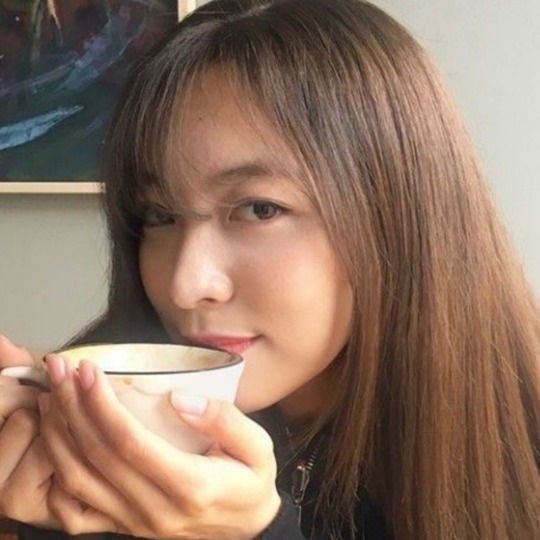

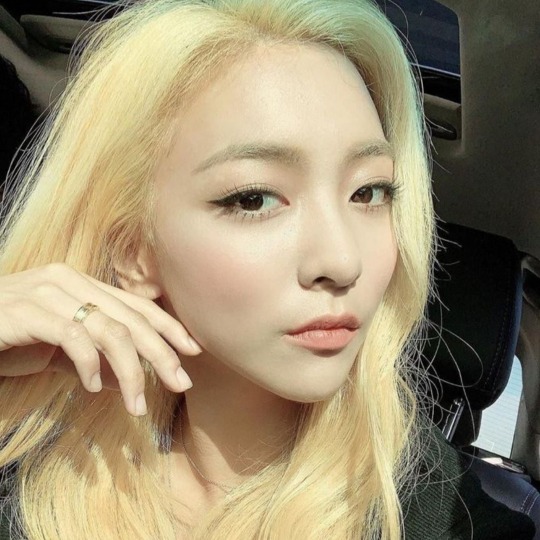

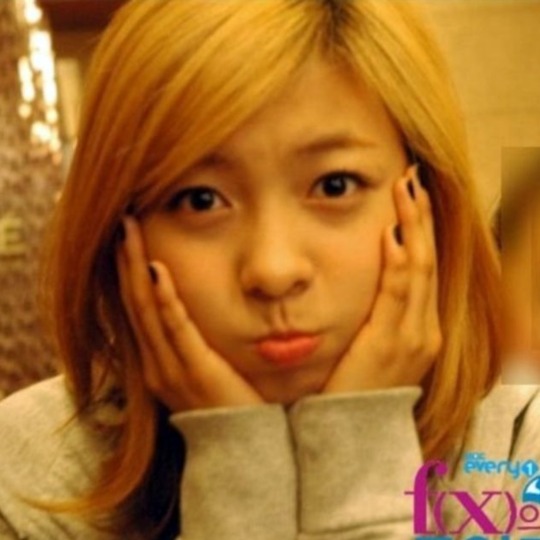

루나
#fx edits#fx stuff#fx icons#lq fx#lq fx icons#luna icons#luna edits#lq luna icons#lq luna#park sunyoung icons#park sunyoung edits#lq park sunyoung icons#lq park sunyoung#kpop edits#kpop icons#girl groups icons#gg icons#ggroups icons#2nd gen kpop
19 notes
·
View notes
Text
Omg, william afton visual novel real?👀😳
This is part 01 of The car saga , but animated :3
#william afton#steve raglan#five nights at freddy's#fnaf#artists on tumblr#video#the car saga#wooow like a real novel 😳 gonna animated the other parts once I got enough time n stuff#tiktok muted my sound and all the sound fx got fucking nuked!! thanks for nothing :)))))))
309 notes
·
View notes
Text




Syd in 2.08 "Bolognese"
#the bear#thebearedit#sydney adamu#ayo edebiri#ayoedebiriedit#the bear fx#thebeartv#nessa007#userstream#userrobyn#televisongifs#userconstance#tvedit#useroptional#filmtvcentral#dailyflicks#cinematv#*my stuff
1K notes
·
View notes
Text

#what we do in the shadows#wwdits#wwdits fx#nandor the relentless#guillermo de la cruz#laszlo cravensworth#nadja of antipaxos#colin robinson#the guide wwdits#ponlolhaha stuff
139 notes
·
View notes
Text
The more i think about it, the more sinister I find the courting of Claire/Carmy, especially the frat party
I just rewatched this episode, and what baffles me the most is...
Claire knew what she was doing, like she had to know, Carmy just told her how desperate he has for having friends growing up, and then she brings the party because he wants to be included but he doesn't feel comfortable partying with people he has seen since hight school, and then she says...'my friend needs me" and "you own me" as she hasn't agreed to go in a trip with him just to hang out, but she pulls that card immediately to convince him to do things he doesn't want to do.
"Carmy wants a mommy."..guess what

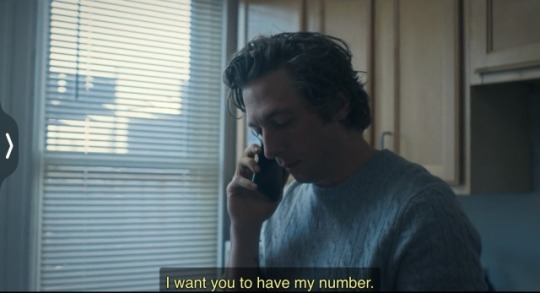
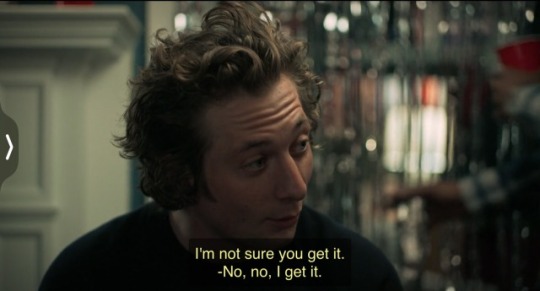

Claire courting Carmy was very mothery, a lot of low key...manipulation:
"you hurt my feelings" "my friends need me" "you own me" "don't make it weird"
like a mother guiding a child to act a certain way to expect a reward in return.
"I dont think she heard you, say it again"
#i am not making this stuff up#anti claire bear#that party had a lot of red flag momments#sydcarmy#the bear#sydney adamu#the bear fx#carmy berzatto#carmen berzatto#the bear meta#carmy x sydney#carmy the bear#sydney x carmy
75 notes
·
View notes
Text

”Crickets…”
69 notes
·
View notes
Text


i was casually looking through the justified scripts i had saved on my computer and i remembered this scene of tim at the bar when raylan and winona were having their failed date in s2... but this script is heavily implying that tim was also on a failing date.
also what is the point of having tim in this scene? it doesn't really do anything except maybe suggesting that winona is worried about being seen with raylan but why would they have the person be tim out of anyone else? Why Would Tim Care? he DOES see and acknowledge them in the final scene i remember but there's no implication of him being on a date, there is a man next to him but it could just be another patron.
the script firmly establishing he's with this other handsome man at the bar who is "solemn" (upset with him?)... and raylan suggesting to invite him to the table on HIS failing date??? while winona objects?? to make her jealous?? or to be defiant??
WHICH COULD MEAN NOTHING!
yes this show still drives me crazy
#tim gutterson#winona hawkins#raylan givens#we need to discuss the winona tim parallels#gutterson#raynona#justified fx#nat posting#script stuff#my thoughts#wtf#justified writers when i find you#tim blogging
43 notes
·
View notes
Text
Shōgun Historical Shallow-Dive: the Final Part - The Samurai Were Assholes, When 'Accuracy' Isn't Accurate, Beautiful Art, and Where to From Here
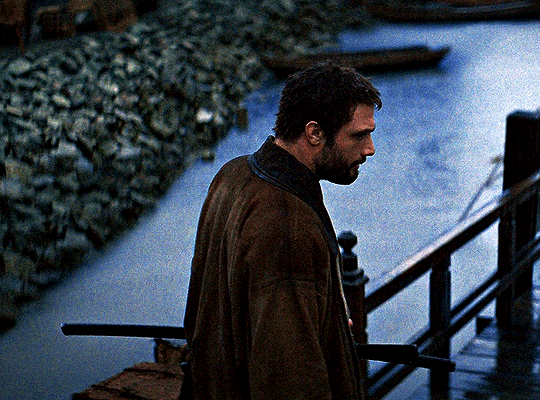
Final part. There is an enormous cancer attached to the samurai mythos and James Clavell's orientalism that I need to address. Well, I want to, anyway. In acknowledging how great the 2024 adaptation of Shōgun is, it's important to engage with the fact that it's fiction, and that much of its marketed authenticity is fake. That doesn't take away from it being an excellent work of fiction, but it is a very important distinction to me.
If you want to engage with the cool 'honourable men with swords' trope without thinking any deeper, navigate away now. Beyond here, there are monsters - literal and figurative. If you're interested in how different forms of media are used to manufacture consent and shape national identity, please bear with me.
I think the makers of 2024's Shōgun have done a fantastic job. But there is one underlying problem they never fully wrestled with. It's one that Hiroyuki Sanada, the leading man and face of the production team, is enthusiastically supportive of. And with the recent announcement of Season 2, it's likely to return. You may disagree, but to me, ignoring this dishonours the millions of people who were killed or brutalised by either the samurai class, or people in the 20th century inspired by a constructed idea of them.
Why are we drawn to the samurai?
A pretty badly sourced, but wildly popular history podcast contends that 'The Japanese are just like everybody else, only more so.' I saw a post on here that tried to make the assertion that the show's John Blackthorne would have been exposed to as much violence as he saw in Japan, and wouldn't have found it abnormal.
This is incorrect. Obviously 16th and 17th century Europe were violent places, but they contained violence familiar to Europeans through their cultural lens. Why am I confidently asserting this? We have hundreds of letters, journals and reports from Spaniards, Portuguese, Dutch and English expressing absolute horror about what they encountered. Testing swords on peasants was becoming so common that it would eventually become the law of the land. Crucifixion was enacted as a punishment for Christians - first by the Taiko, then by the Tokugawa shogunate - for irony's sake.
Before the end of the feudal period, battles would end with the taking of heads for washing and display. Depending on who was viewing them, this was either to honour them, or to gloat: 'I'm alive, you're dead.' These things were ritualised to the point of being codified when real-life Toranaga took control. Seppuku started as a cultural meme and ended up being the enforced punishment for any minor mistake for the 260 years the ruling samurai class acted as the nation's bureaucracy. It got more and more ritualised and flowery the more it got divorced from its origin: men being ordered by other men to kill themselves during a period of chaotic warfare. I've read accounts of samurai 'warriors' during the Edo period committing seppuku for being late for work. Not life-and-death warrior work - after Sekigahara, they were just book-keepers. They had desk jobs.
Since Europe's contact with Japan, the samurai myth has fascinated and appalled in equal measure. As time has gone on, the fascination has gone up and the horror has been dialled down. This is not an accident. This isn't just a change in the rest of the world's perception of the samurai. This is the result of approximately 120 years of Japanese government policies. Successive governments - nationalist, military authoritarian, and post-war democratic - began to lionize the samurai as the perfect warrior ideal, and sanitize the history of their origin and their heydey (the period Shōgun covers). It erases the fact that almost all of the fighting of the glorious samurai Sengoku Jidai was done by peasant ashigaru (levies), who had no choice.
It is important to never forget why this was done initially: to form an imagined-historical ideal of a fighting culture. An imagined fighting culture that Japanese invasion forces could emulate to take colonies and subdue foreign populations in WWI, and, much more brutally, in WWII. James Clavell came into contact with it as a Japanese Prisoner of War.
He just didn't have access to the long view, or he didn't care.
The Original Novel - How One Ayn Rand Fan Introduced Japan to America
There's a reason why 1975's Shogun novel contains so many historical anachronisms. James Clavell bought into a bunch of state-sanctioned lies, unachored in history, about the warring states period, the concept of bushido (manufactured after the samurai had stopped fighting), and the samurai class's role in Japanese history.
For the novel, I could go into great depth, but there are three things that stand out.
Never let the truth get in the way of a good story. He's a novelist, and he did what he liked. But Clavell's novel was groundbreaking in the 70's because it was sold as a lightly-fictionalised history of Japan. The unfortunate fact is the official version that was being taught at the time (and now) is horseshit, and used for far-right wing authoritarian/nationalist political projects. The Three Unifiers and the 'honour of the samurai' magnates at the time is a neat package to tell kids and adults, but it was manufactured by an early-20th century Japanese Imperial Government trying to harness nationalism for building up a war-ready population. Any slightly critical reading of the primary sources shows the samurai to be just like any ruling class - brutal, venal, self-interested, and horrifically cruel. Even to their contemporary warrior elites in Korea and China.
Fake history as propraganda. Clavell swallowed and regurgitated the 'death before dishonour', 'loyalty to the cause above all else', 'it's all for the Realm' messages that were deployed to justify Imperial Japanese Army Class-A war crimes during the war in the Pacific and the Creation of the Greater East Asian Co-Properity Sphere. This retroactive samurai ethos was used in the late Meiji restoration and early 20th century nationalist-military governments to radicalise young Japanese men into being willing to die for nothing, and kill without restraint. The best book on this is An Introduction to Japanese Society by Sugimoto Yoshio, but there is a vast corpus of scholarship to back it up.
Clavell's orientalism strays into outright racism. Despite the novel Shōgun undercutting John Blackthorne as a white savior in its final pages - showing him as just a pawn in the game - Clavell's politics come into play in every Asia Saga novel. A white man dominates an Asian culture through the power of capitalism. This is orthagonal to points 1 and 2, but Clavell was a devotee of Ayn Rand. There's a reason his protagonists all appear cut from the same cloth. They thrust their way into an unfamiliar society, they use their knowledge of trade and mercantilism to heroically save the day, they are remarked upon by the Asian characters as braver and stronger, and they are irresistible to the - mostly simpering, extremely submissive - caricatures of Asian women in his novels. Call it a product of its times or a product of Clavell's beliefs, I still find it repulsive. Clavell invents (nearly from whole cloth, actually) the idea that samurai find money repulsive and distasteful, and his Blackthorne shows them the power of commerce and markets. Plus there are numerous other stereotypes (Blackthorne's massive dick! Japanese men have tiny penises! Everyone gets naked and bathes together because they're so sexually free! White guys are automatically cool over there!) that have fuelled the fantasies of generations of non-Japanese men, usually white: Clavell's primary audience of 'dad history' buffs.
2024's Shōgun, as a television adaptation, did a far better job in almost every respect
But the show did much better, right? Yes. Unquestionably. It was an incredible achievement in bringing forward a tired, stereotypical story to add new themes of cultural encounter, questioning one's place in the broader world, and killing your ego. In many ways, the show was the antithesis to Clavell's thesis.
It drastically reigned in the anachronistic, ahistorical referencees to 'bushido' and 'samurai honor', and showed the ruling class of Japan in 1600 much more accurately. John Blackthorne (William Adams) was shown to be an extraordinary person, but he wasn't central to the outcome of the Eastern Army-Western Army civil war. There aren't scenes of him being the best lover every woman he encounters in Japan has ever had (if you haven't read the book, this is not an exaggeration). He doesn't teach Japanese warriors how to use matchlock rifles, which they had been doing for two hundred years. He doesn't change the outcome of enormous events with his thrusting, self-confident individualism. In 2024's Shōgun, Blackthorne is much like his historical counterpart. He was there for fascinating events, but not central. He wasn't teaching Japanese people basic concepts like how to make money or how to make war.
On fake history - the manufactured samurai mythos - it improved on the novel, but didn't overcome the central problems. In many ways, I can't blame the showrunners. Many of the central lies (and they are deliberate lies) constructed around the concept of samurai are hallmarks of the genre. But it's still important to me to notice when it's happening - even while enjoying some of the tropes - without passively accepting it.
'Authenticity' to a precisely manufactured story, not to history
There's a core problem surrounding the promotion and manufactured discussion surrounding 2024's Shōgun. I think it's a disconnect between the creative and marketing teams, but it came up again and again in advertising and promotion for the show: 'It's authentic. It's as real as possible.'
I've only seen this brought up in one article, Shōgun Has a Japanese-Superiority Complex, by Ryu Spaeth:
'The show also valorizes a supreme military power that is tempered by the pursuit of beauty and the highest of cultures, as if that might be a formula for peace. Shōgun displays these two extremes of the Japanese self, the savagery and the refinement, but seems wholly unaware that there may be a connection between them, that the exquisite sensibility Japan is famous for may flow from, and be a mask for, its many uses of atrocious domination.'
Here we come to authenticity.
'The publicity surrounding the series has focused on its fidelity to authenticity: multiple rounds of translation to give the dialogue a “classical” feel; fastidious attention to how katana swords should be slung, how women of the nobility should fold their knees when they sit, how kimonos should be colored and styled; and, crucially, a decentralization of the narrative so that it’s not dominated by the character John Blackthorne.'
It's undeniable that the 2024 production spent enormous amounts of energy on authenticity. But authenticity to what? To traditional depictions of samurai in Japanese media, not to history itself. The experts hired for gestures, movement, costumes, buildings, and every other aspect of the show were experts with decades in experience making Japanese historical dramas 'look right', not experts in Japanese history. But this appeal to 'Japanese authenticity' was made in almost every piece of promotional material.
The show had only one historical advisor on staff, and he was Dutch. The numerous Japanese consultants, experts and specialists brought on board (talked about at length in the show's marketing and behind the scenes) were there to assist with making an accurate Japanese jidaigeki. It's the difference between hiring an experienced BBC period drama consultant, and a historian specialising in the Regency. One knows how to make things look 'right' to a British audience. The other knows what actually happened.
That's fine, but a critical viewing of the show needs to engage with this. It's a stylistically accurate Japanese period drama. It is not an accurate telling of Japanese history around the unification of Japan. If it was, the horses would be the size of ponies, there would be far more malnourished and brutalised peasants, the word samurai would have far less importance as it wasn't yet a rigidly enforced caste, seppuku wouldn't yet be ritualised and performed with as much frequency, and Toranaga - Tokugawa - would be a famously corpulently obese man, pounding the saddle of his horse in frustration at minor setbacks, as he was in history.
The noble picture of restraint, patience, refinement and honour presented by Hiroyuki Sanada as Toranaga/Tokugawa is historical sanitation at its most extreme. Despite being Sanada's personal hero, Tokugawa Ieyasu was a brutal warlord (even for the standards of the time), and he committed acts of horrific cruelty. He ordered many more after gaining ultimate power. Think a miniseries about the Founding Fathers of the United States that doesn't touch upon slavery - I'm sure there have been plenty.
The final myth that 2024's Shōgun leaves us with is that it took a man like Toranaga - Tokugawa Ieyasu - to bring peace to a land ripped assunder by chaos. This plays into 19th century notions of Great Man History, and is a neat story, but the consensus amongst historians is if it wasn't Tokugawa, it would have been some other cunt. In many cases, it very nearly was. His success was historical contingency, not 5D chess.
So how did this image get manufactured, to the point where the Japanese populace - by and large - believes it to be true? Very long story short: after a period of rapid modernisation, Japan embraced nationalism in the late 19th century. It was all the rage. Nationalism depends on a glorified past. The samurai (recently the pariahs of Japanese history) were repurposed as Japan's unique warrior heroes, and woven into state education. This was especially heated in the 1920s and 30s in the lead up to the invasion of Manchuria and Japan's war of aggression in the Pacific. Nationalism + militarism = the modern Japanese samurai myth, to prepare men to obey orders unquestioningly from a military dictatorship.
This persists in the postwar period. Every year since 1963, Japan's state broadcaster NHK commissions a historical drama - a Taiga Drama, where many of this show's actors got their starts - that manufactures and re-enforces the idea of samurai as noble, artful, honourable people. Read a book - read a Wikipedia article! - and you'll see that most of it stems from Tokugawa-shogunate era self-propaganda. It's much like the European re-interpretation of chivalry. In Europe's case, chivalry in actual history was a set of guidelines that allowed for the sanctioned mass-rape and murder of civilians, with a side of rules regarding the ransoming of nobles in scorched-earth military campaigns. In Japan's case, historical figures that regularly backstabbed each other, tortured rival warriors and their lessers, and inflicted horrific casualties on the peasants that they owned (we have a term for that) are cast as noble, honourable, dedicated servants of the Empire.
Why does this matter to me? Samurai movies and TV shows are just media, after all. The issue, for me, is that the actors, the producers - including Hiroyuki Sanada - passionately extoll 'accuracy' as if they genuinely believe they're telling history. They talk emotionally about bushido and its special place in Japanese society.
But the entire concept of bushido is a retroactive, post-conflict, samurai construction. Bushio is bullshit. Despite being spoken of as the central tenet of 2024's Shōgun by actors like Hiroyuki Sanada, Tadanobu Asano, and Tokuma Nishioka, it simply didn't exist at the time. It was made up after the advent of modern nationalism.
It was used to justify horrendous acts during the late Edo period, the Meiji restoration, and the years leading up to the conclusion of Japan's war of aggression in the Pacific. It's still used now by Japan's primarily right-wing government to deny war crimes and justify the horrors unleashed on Asia and the Pacific during World War II as some kind of noble warrior crusade. If you ever want your stomach turned, visit the museum attached to Yasukuni Shrine. It's a theme park dedicated to war crimes denial, linked intimately to Japan's imagined warrior past. Whether or not the production staff, cast, and marketing team of 2024's Shōgun knew they were engaging with a long line of ahistorical bullshit is unknown, but it is important.
It's also important to acknowledge that, having listened to many interviews with Rachel Kondo and Justin Marks, they were acutely aware that they weren't Japanese, to claim to be telling an authentically Japanese story would be wrong, and that all they could do was do their best to make an engaging work that plays on ideas of cultural encounter and letting go. I think the 'authenticity!' thing is mostly marketing, and judicious editing of what the creators and writers actually said in interviews.
So... you hate the show, then? What the hell is this all about?
No, I love the show. It's beautiful. But it's a beautiful artwork.
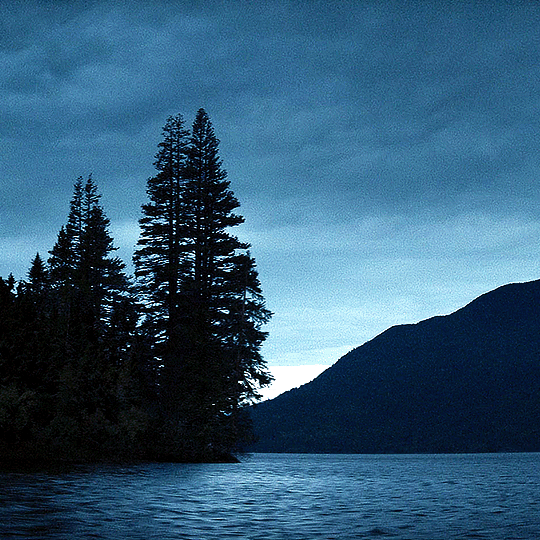
Just as the noh theatre in the show was a twisting of events within the show, so are all works of fiction that take inspiration from history. Some do it better than others. And on balance, in the show, Shōgun did it better than most. But so much of the marketing and the discussion of this adaptation has been on its accuracy. This has been by design - it was the strategy Disney adopted to market the show and give it a unique viewing proposition.
'This time, Shōgun is authentic!*
*an authentic Japanese period drama, but we won't mention that part.
And audiences have conflated that with what actually happened, as opposed to accuracy to a particular form of Japanese propaganda that has been honed over a century. This difference is crucial.
It doesn't detract from my enjoyment of it. Where I view James Clavell's novel as a horrid remnant of an orientalist, racist past, I believe the showrunners of 2024's Shōgun have updated that story to put Japanese characters front and centre, to decentralise the white protagonist to a more accurate place of observation and interest, and do their best to make a compelling subversion of the 'stranger in a strange land' tale.
But I don't want anyone who reads my words or has followed this series to think that the samurai were better than the armed thugs of any society. They weren't more noble, they weren't more honourable, they weren't more restrained. They just had 260 years in which they worked desk-jobs while wearing two swords to write stories about how glorious the good old days were, and how great people were.
Well... that's a bleak note to end on. Where to from here?
There are beautiful works of fiction that engage much closer with the actual truth of the samurai class that I'd recommend. One even stars Hiroyuki Sanada, and is (I think) his finest role.
I'd really encourage anyone who enjoyed Shōgun to check out The Twilight Samurai. That was the reality for the vast majority of post-Sekigahara samurai
For something closer to the period that Shogun is set, the best film is Seppuku (Hara-Kiri in English releases). It is a post-war Japanese film that engages both with the reality of samurai rule, and, through its central themes, how that created mythos was used to radicalise millions of Japanese into senseless death during the war. It is the best possible response to a romanticisation of a brutal, hateful period of history, dominated by cruel men who put power first, every single time.
I want to end this series, if I can, with hope. I hope that reading the novel or watching the 1980 show or the 2024 show has ignited in people an interest in Japanese culture, or society, or history. But don't let that be an end. Go further. There are so many things that aren't whitewashed warlords nobly killing - the social history of Japan is amazing, as is the women's history. A great book for getting an introduction to this is The Japanese: A History in 20 Lives.
And outside of that, there are so many beautiful Japanese movies and shows that don't deal with glorified violence and death. In fact, it makes up the vast majority of Japanese media! Who would have thought! Your Name was the first major work of art to bridge some of the cultural animosity between China and Japan stemming from WW2, and is a goofy time travel love story. Perfect Days is a beautiful movie about the simple joy of living, and it's about the most Tokyo story you can get.
Please go out, read more, watch more. If you can, try and find your way to Japan. It's one of the most beautiful places on earth. The people are kind, the food is delicious, and the culture is very welcoming to foreigners.
2024's Shōgun was great, but please don't let that be the end. Let it be the beginning, and I hope it serves as a gateway for you.
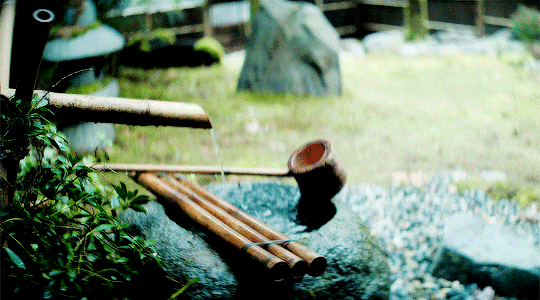
And I hope our little fandom on here remembers this show as a special time, where we came together to talk about something we loved. I'll miss you all.
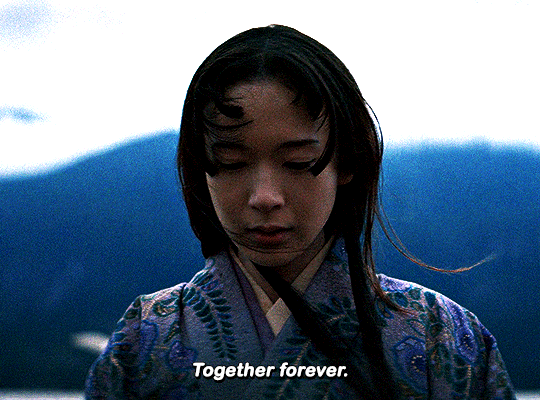
#shōgun#shogun#shogun fx#toda mariko#john blackthorne#anjin#adaptationsdaily#perioddramasource#hiroyuki sanada#yoshii toranaga#akechi mariko#history#history lesson#japan#world war ii#japanese culture#tokugawa ieyasu#hosokowa gracia#william adams#sengoku jidai#writer stuff#book adaptation#women in history#social history#period drama
173 notes
·
View notes